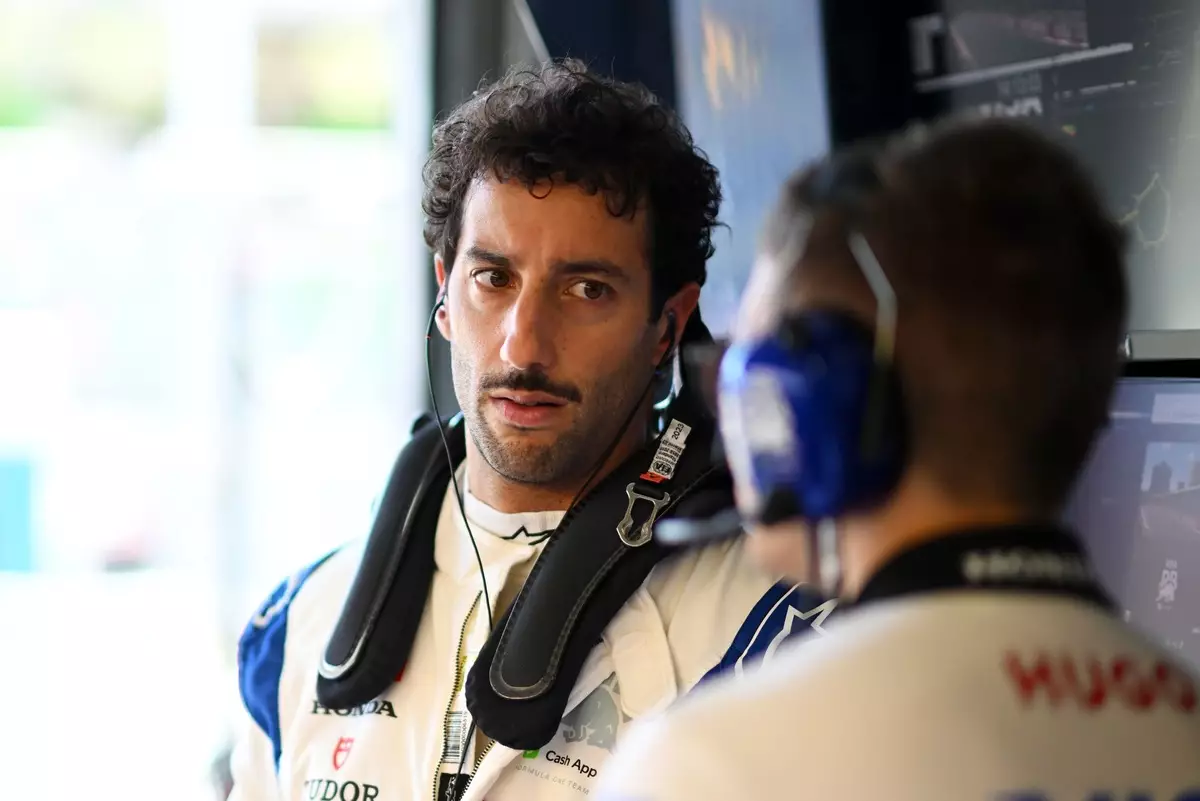The tenure of Daniel Ricciardo at Red Bull Racing was not merely a narrative of highs and lows; it serves as a conduit for examining the intricacies of team dynamics, driver performance, and the broader implications of race engineering. Laurent Mekies, Red Bull’s team principal, has acknowledged the collective responsibility shared by the team for Ricciardo’s inability to reclaim his previous glory during his stint. His journey at Red Bull highlights both potential and pitfalls, making it imperative to reflect on why his comeback fell short of expectations.
Last summer, Ricciardo was offered a lifeline by Red Bull, reintegrated to the squad as a seasoned backup. This decision was prompted by the disappointing performance of Sergio Perez and the need for an experienced driver to step in if necessary. However, Ricciardo’s initial return was marred by an unfortunate hand injury incurred during a practice session at the Dutch Grand Prix, which sidelined him just as he was regaining his footing in the sport.
Despite the challenges, Ricciardo’s resilience was evident. He showcased glimpses of his formidable talent, particularly evident during the sprint race in Miami where he secured a commendable fourth place. Such performances highlighted the potential within the veteran driver, yet they were fleeting moments overshadowed by overarching inconsistencies. Ultimately, this inconsistency led to Ricciardo being unable to cement his position at Red Bull, resulting in the team’s decision to favor Liam Lawson as a more viable alternative.
In reflecting upon Ricciardo’s struggles, Mekies openly embraced the notion of collective accountability within the team. Rather than attributing the lack of momentum to Ricciardo alone, he emphasized that both the driver and team dynamics played crucial roles in this outcome. He rightly pointed out that while Ricciardo could occasionally unleash remarkable speed, the essence of racing lies in maintaining that performance consistently.
Mekies acknowledged, “Did we manage to keep Daniel in that sweet spot often enough? No, that’s the reality.” This admission is emblematic of a deeper insight into team operations—success in Formula 1 is nurtured through harmonious collaboration, not just individual talent. The candid acceptance of responsibility invites a broader analysis of how teams can better support their drivers, especially those returning to the grid after periods of adversity.
Interestingly, Ricciardo’s struggles inadvertently catalyzed positive outcomes for his teammates and the overall team development process. As the technical squads assessed Ricciardo’s data, they expanded their understanding of the car’s capabilities, enriching their engineering approach in tandem. This exploration ultimately benefitted Yuki Tsunoda and the newly promoted Lawson, providing them with insights that might not have been uncovered otherwise.
Mekies elaborated on this process, suggesting that Ricciardo’s experiences widened the avenues through which the team could experiment with car setups and configurations. This continuous pursuit of optimization is central to race readiness, reinforcing that even setbacks can yield dividends if tackled constructively. Consequently, Ricciardo’s tenure became an indispensable chapter in rewriting the team’s engineering narrative.
Despite the challenges, it is essential to recognize the contributions Ricciardo made to Red Bull’s strategic evolution. Mekies highlighted the importance of having someone of Ricciardo’s experience within the team as they navigated a technical overhaul. His invaluable input in areas like car development and the competitive mindset required for success exemplified his lasting influence, even if it did not culminate in the anticipated race victories.
In essence, Ricciardo’s presence provided a benchmark against which the rest of the team measured progress. His understanding of racing at high stakes, combined with his competitive spirit, enriched the framework within which the team operates, ensuring that the lessons learned would resonate through Red Bull Racing, even as they looked to the future without him.
The narrative surrounding Daniel Ricciardo’s time at Red Bull Racing unfolds as a nuanced exploration of failure, optimism, and resilience. The lessons learned within this context not only speak to the challenges faced by drivers in the ever-competitive realm of Formula 1 but also to the importance of cohesive team support. As Red Bull moves forward with a new driver lineup, the reflections on Ricciardo’s experience will undoubtedly inform their strategies for nurturing talent and performance, shaping the future of the team and the sport itself.

